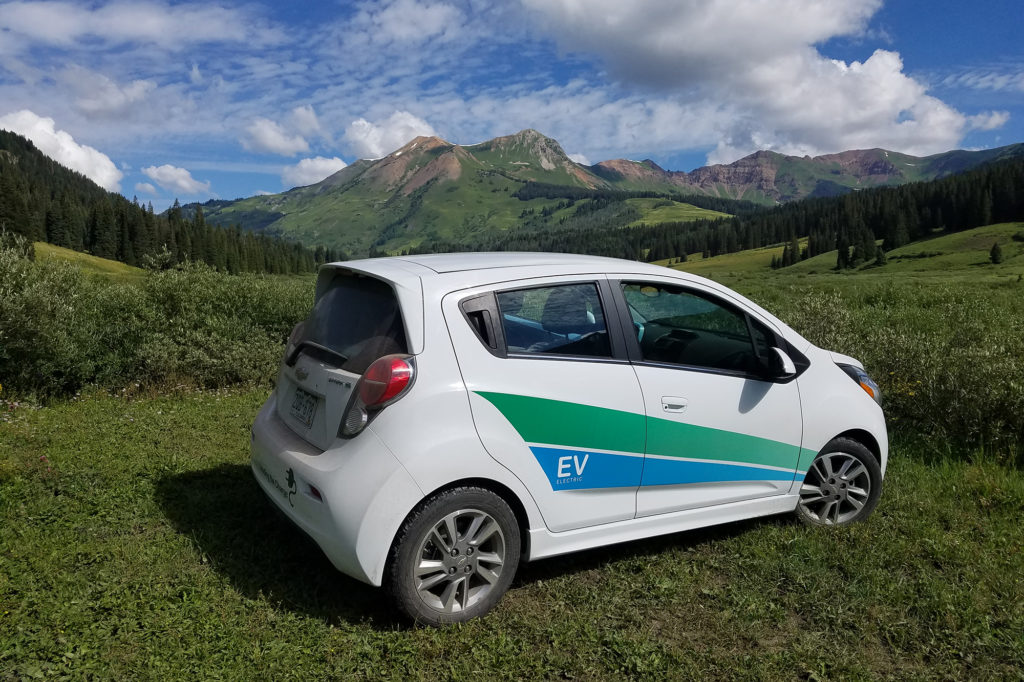
With new fuel efficiency and greenhouse gas standards on the horizon, NRECA wants federal regulators to be mindful of the benefits of electric vehicles and the investments electric cooperatives have made in this clean transportation option.
America’s electric co-ops joined the utility and auto industries in sending that message to the Environmental Protection Agency and the National Highway Traffic Safety Administration. The agencies are exploring a range of proposed Corporate Average Fuel Economy (CAFE) and greenhouse gas standards for light-duty vehicles.
“NRECA members are excited by the opportunity to provide electricity to their members choosing to purchase electric vehicles. Having a consistent national policy on vehicle standards provides the long-term incentives needed to guide co-op investment decisions for charging infrastructure,” said Dan Chartier, NRECA regulatory director, environmental policy.
“We appreciate the opportunity to join with the broader utility and auto sectors in encouraging incentives in federal standards that include increased deployment of electric vehicles. This is a win for consumers and the environment.”
NRECA, along with the Edison Electric Institute, the Alliance of Automobile Manufacturers, the American Public Power Association and the Association of Global Automakers, sent a letter to EPA and the Department of Transportation encouraging the inclusion of EVs as a flexible way to reduce vehicle emissions while meeting consumers’ growing demand for alternative fuels.
At least 150 NRECA member co-ops provide off-peak charging rates for EV users. Dozens of electric co-ops across the country have programs that implement charging infrastructure in their service territory.
NRECA and the trade groups underscored how EVs “play an important role in achieving energy and environment goals for each of our industries.” As of 2017, the electric sector had reduced its greenhouse gas emissions by 27 percent from 2005 levels, and the continued deployment of natural gas-based and renewable generation will only further this trend, the groups told EPA and DOT.
“As the Agencies consider potential changes to the standards, EPA should extend and improve the current regulatory mechanisms that provide critical support for EVs and advanced vehicles, including hybrid and fuel cell electric vehicles, for model year[s] 2022-2025,” the groups said.
And, they added, that EVs can play “an important part of the range of technologies and measures needed to reduce reliance on imported fuels, maintain a balanced energy mix, and reduce greenhouse gases and other emissions.”
Cathy Cash is a staff writer at NRECA.